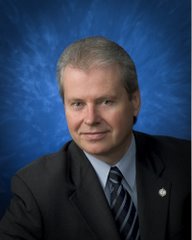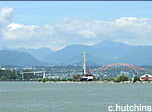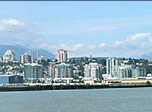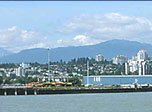A new political book about hope just arrived.
It was an encouraging read from Governor Ron DeSantis of
Florida, entitled “The Courage to Be Free.” Even though the book is an American
treatise, the cultural challenges and needed prescriptions seem most relevant
to Canada. I thoroughly enjoyed it and highly recommend it.
So, who is this man, what makes him worth studying and
where is the message for Canada?
Ron DeSantis is Florida’s forty-sixth governor and one of
the few American statesmen to receive bipartisan praise for his leadership
during the COVID-19 pandemic. An honours graduate of Yale University and
Harvard Law School, he served as an officer in the U.S. Navy and an adviser to
a SEAL commander in Iraq, earning the Navy and Marine Corps Commendation Medal
and the Bronze Star. He also served as a federal prosecutor.
In 2012 he was elected to Congress, where he served on the
Committee on Oversight and Government Reform. He advocated for congressional
term limits and a balanced budget amendment. He also spearheaded oversight
efforts to expose malfeasance in the IRS and in agencies involved in abusing
their authority during the manufacture of the discredited Russia collusion conspiracy
theory. And his book speaks about the governance challenges that are similar to
the Canadian dilemma, where the ‘offenders’ have been in charge, and the
direction of government has been very wrong.
Particularly, DeSantis mentions the China problem, as well
as the “woke” subversives within our respective governments. On China, he says: "The Chinese
Communist Party (CCP) represents the most significant threat — economically,
culturally, and militarily — the United States has faced since the collapse of
the Soviet Union. Unlike with the Soviet Union, this time we created that
threat. Ruling class American elites in government and business pursued a
post-Cold War strategy of empowering the CCP by admitting China into the World
Trade Organization and granting it "most favored nation" trading
status on the theory capitalism would exert a democratizing influence on the
Red Dragon. This enriched large corporations in the United States, further
eroded America's industrial base, and bolstered the CCP, which grew more
authoritarian as China gained more power."
"But letting the CCP into international organizations
to try to make China less corrupt actually led to the corruption of our
international organizations and made China more prosperous. The fact the US
government has not held the CCP accountable for its actions in covering up the
origins of the coronavirus has been a major failure."
"While the CCP is primarily an issue for the federal
government to manage, I wanted Florida to do what we could within the confines
of state power to push back against CCP influence. I signed a series of
legislative reforms designed to end the access that foreign adversaries such as
the CCP have had in Florida. These reforms prohibited agreements between public
institutions and the CCP and imposed stiffer penalties for foreign espionage
and the stealing of trade secrets."
"One of the important parts of the reforms was the ban
on Confucius Institutes (or similar outfits), which are a CCP propaganda and
influence operation inside the United States. At one point, there were more
than 100 Confucius Institutes on college campuses and hundreds in K-to-12
schools throughout the United States. These institutes are billed as vehicles
for "cultural exchange”, but in reality, they represent a CCP influence
operation designed for enhancing China's "soft power." This
understandably raised alarms at the close relationship between the CCP and
American higher education. The CCP has been very deft at infiltrating
institutions in the US to wield influence and conduct espionage. Policy at the
federal level needs to do a much better job of combating CCP influence across a
range of institutions. In Florida, at least, we take the CCP's influence very
seriously."
The DeSantis formula then, is active democracy and bold
leadership rather than traditional accommodation and compromise. He further
says: "What Florida has done is establish a blueprint for governance that
has produced tangible results while serving as a rebuke to the entrenched
elites who have driven our nation into the ground. Florida is proof positive we
the people are not powerless in the face of these elites."
Who exactly are these elites? In an essay in the American
Spectator in 2010, Angelo Codevilla identified the source of America's
political divisions and policy failures as the ideological, incompetent and
self-interested "ruling class" that has consolidated power over
American society in the past 50 years. These elites control the federal
bureaucracy, lobby shops on K Street (a metonym for Washington's lobbying
industry), big business, corporate media, Big Tech companies, and universities.
Its members are products of America's ideological higher education system, and
consequently are united by a common set of ideas and "remarkably uniform
guidance, as well as tastes and habits." This ideological uniformity
transcends divisions based on geography, ethnicity and traditional religion;
indeed, the ideology is the elites' de facto religion.
These elites are 'progressives' who believe our country
should be managed by an exclusive cadre of experts who wield authority through
an unaccountable and massive administrative state. They tend to view average
Americans with contempt, believe in the need for wholesale social engineering
of American society, and consider themselves entitled to wield power over
others.
While they are elites, in this context, the word
"elite" does not signify someone of tremendous aptitude, great
wealth, or major achievement. Instead, it signifies someone who shares the
ideology and outlook of the ruling class, which one can demonstrate by
"virtue signaling" (i.e., speaking the "in" language) and
by seeing Americans as subjects to be ruled over, not as citizens to be
represented.
The book is a brief history of a modern man with
traditional ideals and principles. Governor DeSantis led one of the largest
states in the country through a dark and difficult time. It is a story of how
it was done, and is part biography and part vision. For anyone who was socially
concerned during the COVID insanity and was asking questions that nobody in the
media seemed to be asking, the book is great.
Anyone who's questioning where the “woke stuff” is going
should also read. It could be said it's a brief blueprint for America, and also
the free world. When the New York Times is negatively critical of the book, one
has to know DeSantis is on the right track.
Ron DeSantis constructed a movement by doing what was
constitutionally required. Rather than being hopeful the polls would support
him, he didn’t even regard them. From the start to the final paragraph, he
delivered a message of how one can find the support to do what is best for the
citizens that he is accountable to, by being open and honest, which takes
political courage.
The governor describes how he was guided by the
Constitution, real evidence, and common sense. Since his resounding second-term
electoral win, he is viewed as more than a politician, but rather a statesman
with a focus on what is best for the people of his state.
In the world of Ron DeSantis, it's deeds that count. His
governorship begins with a determination to defend the rights of Floridians. No
polls are taken, and the DeSantis career will live or die based on the results.
He describes how the hurtful political left was stopped, parental rights were
defended, and mask and vaccine mandates and shutdowns were ended. Then a step
further, elites were blocked from getting businesses and employers to privately
impose radical ideological restrictions on workers and customers. Floridians kept
their jobs, schools stayed open, and the elderly were protected with COVID
metrics better than the shutdown states.
At first, winning with less than a .4% margin in the 2018
vote, he points to researching the limits of the executive authority, and then having
the courage to use it actively and wisely. Then the record of his
administration brings him a resounding second-term electoral approval. The
dispute with Disney is clarified, their Mickey Mouse City is ended only when
the company fights him, loses, then goes beyond its business purpose and tries
to repeal parental rights laws just passed by the legislature.
This is the only politician’s book that writes of his
accomplishments, but also concludes, “If doing the right thing results in
losing an election, then so be it.” We need more leaders with that basic
approach.
In this book, one will find a wealth of reasons why the
federal government has failed the people. DeSantis explains how he took on the
elite corrupt media, powerful corporations, and entrenched proletarianism in
government offices, to protect the rights of Florida's citizens. Many seem
convinced he can do the same for all of America.
Ron DeSantis appears to have the courage of his principles,
and the common sense to lead out of the crazy hellhole the political left has
flung society into.
It is well worth the time and money, written by someone who
could be the next president of the USA. And as a Canadian, it is a huge
encouragement that he could be.










No comments:
Post a Comment